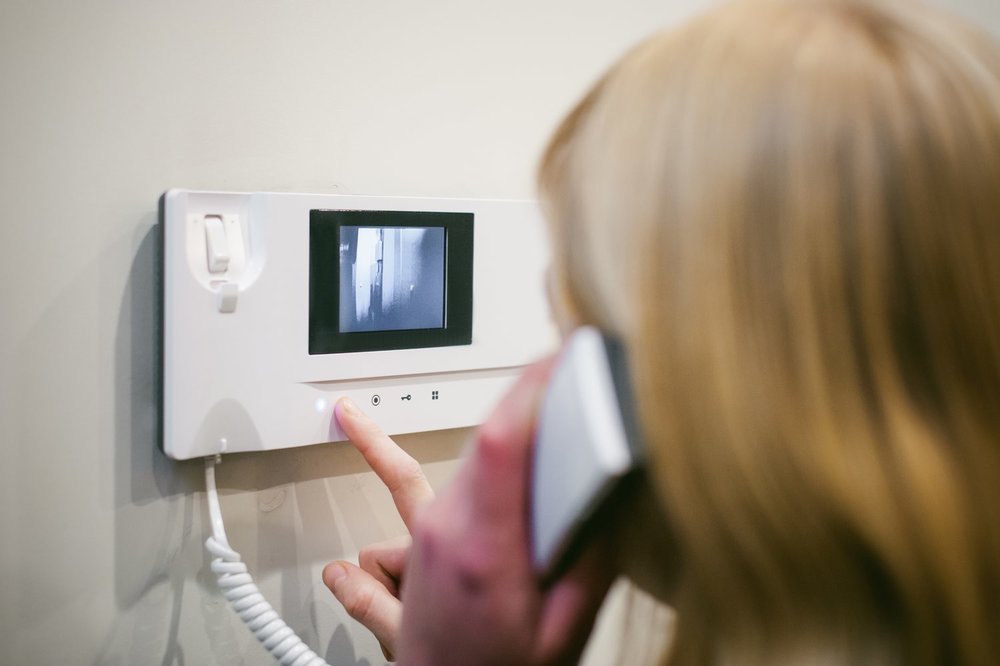VoIP Intercom: What Is It? Benefits?

TELECOMMUNICATIONS EQUIPMENT & SERVICES | VOIP Technology
With the widespread use of VoIP technology, some older features have become obsolete. One good example is faxing, where more businesses are switching to digital faxes that work with VoIP. Intercom calls are another example. Intercom systems were once very popular, but you don’t have to use them only in certain situations. But at least some VoIP service plans include this feature for companies that need it.
Let me get this straight: what is an intercom system?
An intercom is a voice communication system used exclusively within a single building or campus. Outside of structures like apartments or restricted parts of a workplace campus, intercom systems are often installed permanently. Intercom systems are very commonly used in academic institutions. These systems are used to regulate access to restricted areas and operate independently of the public switched telephone network (PSTN).
You might not always require a desk phone or other special device to make an intercom call. In order to facilitate intercom usage from any device, several service providers make available desktop and mobile software. Usually, the default setting is to not enable this. If you need to use this function, you’ll have to activate and set it up on individual devices. The online control panel makes it easy to set up the configuration.
When should I use a VoIP intercom system?
Door buzzers and VoIP intercoms
One of the most common uses of intercom systems is to regulate entry to a secure area. Similar to how they would with any other SIP phone, businesses can connect door buzzers to their VoIP phone systems. However, the buzzer allows visitors in rather than answers calls. This feature is a fantastic way to increase security and keep a careful eye on who is permitted to enter specific locations inside a building or the entire structure.
These buzzer devices are common in warehouses, server rooms, schools, and colleges, among other places. Some devices have the ability to broadcast both audio and video. Even video can be recorded for later playback for review and supervision. Existing security systems can be improved by integrating the phone system with surveillance systems (like CCTV).
Introducing Visitors
There are occasions when you don’t want to call individuals but yet need to deliver information, such when visitors enter the facility. Intercom calls are a fantastic way to accomplish that. Through intercom calls, a receptionist or security officer can welcome guests without having to wait for a phone to ring.
Call Parking and Transfer
Routing calls to the appropriate employee is a common task in today’s hectic workplaces. It is possible to use multiple VoIP capabilities in conjunction with one another to accomplish the same goal, depending on your setup. Let’s pretend you need to cc your coworker on a call. After putting the caller on hold, you can use the intercom to transfer the call to the other party.
Communication and Alerting System for Emergencies
VoIP’s intercom calling capability can also be used to broadcast an emergency message across a campus. Users in different locations can be reached immediately in an emergency thanks to the device’s ability to function as if it were a standard SIP endpoint.
The intercom devices can be set up to talk to one another depending on your needs. Although a SIP phone may make intercom calls, independent units may be required if you are constructing an emergency broadcast system. These devices are designed to be waterproof and durable enough for outdoor use.
THE BENEFITS OF VOIP INTERCOM
Prior to VoIP, businesses needed a separate intercom system for local communication. However, VoIP service providers are increasingly including it as a separate option in their service plans. This makes it beneficial for improving office communication, increasing building security, and monitoring access to secure areas.
No business can afford to ignore the issue of security, whether that be online or off. VoIP-enabled access control can improve security and lessen risks in an age when hackers are increasingly using social engineering to bypass protections. A security measure that requires employees to present identification and authentication before entering restricted areas can stop crooks from entering the workplace.
Intercoms are used for access points other than building doors. You can even restrict access to different floors of the same building, allowing only authorized workers to enter.





